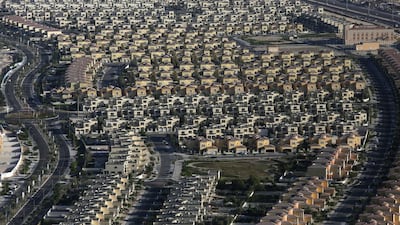Buying a house is probably the biggest purchase you will make during your lifetime and if you've decided on financing your purchase with a mortgage, you're looking at a long-term commitment.
UAE residents are constantly on the lookout for good deals, and just like any other purchase, you should shop around for the best mortgage and explore all your options before signing on the dotted line.
From trends in interest rates to criteria that decide whether or not you're eligible for the finance, here Souqalmal.com outlines three factors potential borrowers must be aware of that affect their borrowing in the short as well as long run:
1. The interest rate
There are two kinds of rates offered by banks on mortgages, fixed and variable. The fixed rate on your mortgage is set for a certain number of years while a variable rate changes with the market rate.
The rate calculation on financing can also be calculated in two ways. While the reducing balance method charges you a rate based on your outstanding balance, the second method, the flat rate, charges you a rate based on your principal amount for the duration of the term.
Almost six in 10 of all home loans in the UAE are offered at reducing rates ranging from 3 per cent to 4 per cent. Only about 10 per cent of mortgages are offered at rates lower than that, with the lowest rates starting from 2.94-2.95 per cent, based on a reducing balance.
2. Rising interest rates
Mortgage borrowers are the most affected by interest rate hikes even with the smallest change. This is because the long loan tenures and high loan amounts magnify the effect of the rise in interest rates.
With the recent increase in EIBOR, mortgage owners may notice they are paying more towards their home loans than before. So what is this Emirates Interbank Offered Rate (EIBOR) that’s affecting the borrowers?
EIBOR is the interest rate charged by banks in the UAE for interbank transactions. In simple words, when one bank requires money, it will borrow from the second bank. The second bank will lend money at an interest rate called the EIBOR. This rate is declared by the UAE Central Bank.
When the EIBOR goes up, banks are likely to pass on this increase to their customers. A similar scenario holds true for when it goes down. According to experts, the recent increase in EIBOR is due to two factors: firstly the Federal Reserve’s decision to raise the range of its benchmark interest rate by a quarter of a percentage point to between 0.25 per cent and 0.50 per cent and secondly due to the tightening liquidity in the UAE banking sector as a result of declining bank deposits.
Most banks in the UAE are benchmarked to the EIBOR. Banks typically add 3 to 5 percentage points to EIBOR to calculate the rate it offers to bank customers. While those with variable interest rates on their mortgages will see the EIBOR hike impact their monthly repayments, those with fixed-rate mortgages will be unaffected until that fixed-rate period expires.
Some banks have already raised their mortgage rates this year in line with the rising EIBOR.
3. Eligibility criteria
A number of factors determine your eligibility for a home loan. Some of these include minimum salary requirement, minimum length of service and whether you work for a company which is listed with the bank, among others.
According to data insights by Souqalmal.com, those with a monthly salary of Dh20,000 in the UAE, can access 84 per cent of home loans available in the market.
The majority of UAE home loans in the UAE (84 per cent) don’t have a salary transfer requirement either, ie transferring your salary to the bank is not a mandatory criteria to apply for a mortgage with the bank. However, being on a bank’s approved employers list seems to be of importance, since 89 per cent of all home loans are only offered to such individuals.
pf@thenational.ae
Follow us on Twitter @TheNationalPF

